future of journalism
description: a topic of discussion focusing on how journalism will evolve, particularly in the context of technological change and economic models
25 results
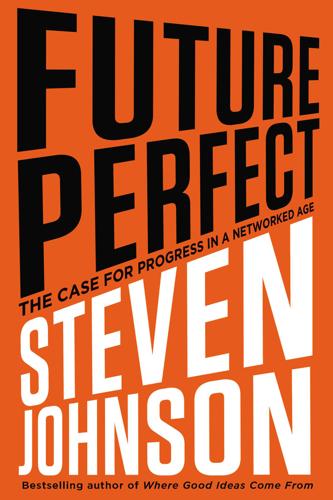
Future Perfect: The Case for Progress in a Networked Age
by
Steven Johnson
Published 14 Jul 2012
Not every individual bit of news information in the system has to be interesting to the entire audience, and the number of potential contributors to the system is large enough to put a potential reporter on every street corner. In a world where media are made by peers and not just papers, new kinds of journalism become possible. The future of journalism has, of course, been the subject of great debate over the past half decade or so. The simplest way to understand what has happened over that period is this: the overarching system of news is transitioning from a Legrand Star to a Baran Web, from a small set of hierarchical organizations to a distributed network of smaller and more diverse entities.
…
So when that time of the month rolled around, I’d organize my week around regular check-ins at College Hill to see if a shipment of Macworlds had landed on their magazine rack. This was obsessive behavior, I admit, but not entirely irrational. It was the result of a kind of imbalance—not a chemical imbalance, an information imbalance. To understand the peer-progressive take on the future of journalism, it’s essential that we travel back to my holding pattern outside the College Hill Bookstore—which continued unabated, by the way, for three years. If we’re going to have a responsible conversation about the future of news, we need to start by talking about the past. We need to be reminded of what life was like before the Web.
…
The organization itself is designed explicitly on peer-network principles, but it also wants to make sure the information it produces flows through as wide a net as possible. One of the reasons ProPublica can do this, of course, is that it is a nonprofit whose mission is to be influential, and not to make money. It seems to me that this is one area that has been underanalyzed in the vast, sprawling conversation about the future of journalism over the past year or so. A number of commentators have discussed the role of nonprofits in filling the hole created by the decline of print newspapers. But they have underestimated the information productivity of organizations that are incentivized to connect, not protect, their words. A single piece of information designed to flow through the entire ecosystem of news will create more value than a piece of information sealed up in a glass box.
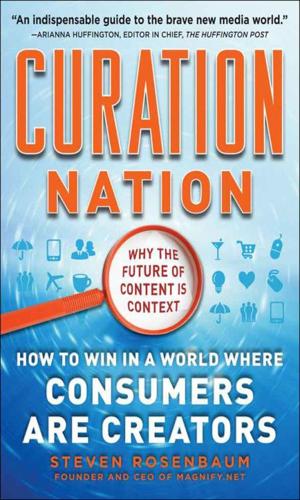
Curation Nation
by
Rosenbaum, Steven
Published 27 Jan 2011
In the same way, as publishers struggle to figure out curation, there will be a few leaders and lots of followers searching for the future economic model for content. THE FUTURE OF JOURNALISM Every formerly powerful editorial structure, it seems, is having a fit over loss of its centralized control: how dare people without history degrees pick what they like, or how dare those without journalism degrees share what they know! The nerve! If you are wondering why there’s so much hand-wringing over the future of journalism in a curated world and less Sturm and Drang over, for example, how Etsy is disintermediating the local arts and crafts fair, there’s a simple answer.
…
It has a full-time staff of 20 just to review comments—with the power to approve them and to remove objectionable ones—and the human curation of these contributions makes for frothy and mostly civil dialogue. In June 2010 alone, the site received a staggering 3.1 million comments. “Self-expression is the new entertainment,” Huffington explains. “People don’t want to just consume information, they want to participate. Recognizing that impulse is the future of journalism.” Huffington is in many ways the poster girl for curation. She curates her bloggers, choosing voices that are distinctive and unique. She curates her reporters, putting a small number of journalists to work, but making a lot of impact with them. She curates the linked stories, choosing provocative pictures and testing headlines that work and drive traffic.
…
“There’s no way you can supersede human editing,” she says. “We have a clear attitude. The whole thing is about editors following their passions.” Huffington, Wolff, Abrams: these are smart, serious folks. And while they’ve all got their own take on how news will evolve, they all agree on one thing: curation will be key to the future of journalism. Writers, editors, publishers, and readers all ignore it at their own peril. 4 CONSUMER CONVERSATIONS AND CURATION It’s easy to look at curation as a powerful change agent for editorial enterprises such as magazines and newspapers, and that is certainly the case. But it’s far more powerful than that.
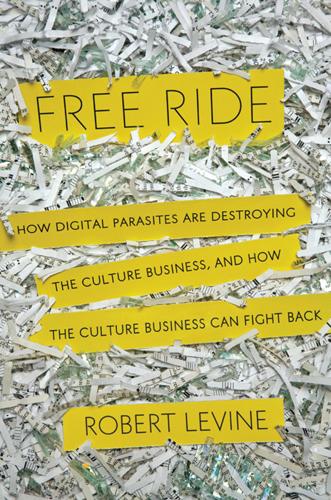
Free Ride
by
Robert Levine
Published 25 Oct 2011
Rather than apply regular media economics to online publications, which would involve spending more money on reporting, most technology executives push traditional publications to adapt online economics: inexpensive ads and content that costs as little as possible. Their ideas for the future of journalism include citizen journalism, nonprofit-funded reporting, and various innovations based on publicly available data. But they don’t seem to involve many journalists. Few companies have done more to promote these ideas than Google, which has used the public discussion about the future of journalism to push its own priorities. In April 2010, the Knight Commission on the Information Needs of Communities in a Democracy, a group funded by the John S. and James L.
…
In 2009, a court dismissed a case in which the Scranton Times-Tribune sued a rival for rewriting its obituaries. 38. The Future of Journalism: Hearing Before the Communications, Technology, and the Internet Subcommittee of the Senate Commerce, Science, and Transportation Committee, 111th Cong., 1st sess. (May 6, 2009) (Arianna Huffington testimony). 39. Knight Commission on the Information Needs of Communities in a Democracy, Informing Communities: Sustaining Democracy in the Digital Age (Washington, D.C.: Aspen Institute, October 2, 2009). 40. At a 2009 Senate Commerce Committee hearing on the future of journalism, Alberto Ibargüen testified that “nothing Congress can do is as important as providing universal, affordable digital access and adoption.”
…
In concept, it’s not unlike the music collection societies ASCAP and BMI, which pay songwriters for use of their compositions on radio and in restaurants. Technology companies that want to start businesses around Associated Press articles or content from other member companies would have an easy time arranging it, while those that don’t pay would have no excuse. At a May 2009 Senate Commerce Committee hearing on the future of journalism, Arianna Huffington mocked the idea that the Baltimore Sun could charge for content that only Sun subscribers could read. “That’s not how people are consuming news,” she said.38 This is true, of course, but mostly because the Huffington Post and other online sites use Sun stories to draw in readers.
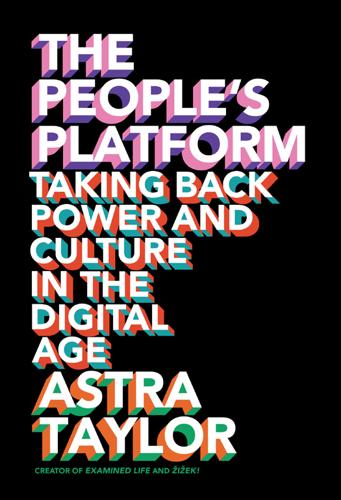
The People's Platform: Taking Back Power and Culture in the Digital Age
by
Astra Taylor
Published 4 Mar 2014
The classic example is newspapers, which people bought for the classifieds or comics—these readers translated into higher advertising revenue, which helped finance foreign desks. The days for those kinds of arrangements are numbered, as Yahoo!’s Marissa Mayer made clear at a Senate hearing on the future of journalism. Individual articles are the new “atomic unit of consumption for news,” she observed, a shift that requires a different approach to monetization: “each individual article should be self-sustaining.” Upon hearing her testimony, advertisers rejoiced the world over. Never again would they have to inadvertently fund accountability journalism to get their message out.
…
Doug Henwood, After the New Economy (New York: The New Press, 2003), 1. 3. Alan Greenspan, “The American Economy in a World Context,” 35th Annual Conference on Bank Structure and Competition of the Federal Reserve Bank of Chicago, Chicago, May 16, 1999; Henwood, After the New Economy, 79 and 86. 4. Ibid., 201 and 217. 5. Tom Rosenstiel, “Five Myths About the Future of Journalism,” Washington Post, April 7, 2011. 6. Eli Pariser, The Filter Bubble: What the Internet Is Hiding from You (New York: Penguin Press, 2011), 49. 7. Lacy, Once You’re Lucky, Twice You’re Good, 92–93. 8. The term “digital sharecropping” was coined by Nicholas Carr. Nicholas Carr, “Sharecropping the Long Tail,” Rough Type (blog), December 19, 2006, http://www.roughtype.com/?
…
Quotes from an interview with the author except for this one, which is from Justin Cox, “Documenting a Bin Laden Ex-Confidante: Q&A with Filmmaker Laura Poitras,” TheHill.com, July 13, 2010, http://thehill.com/capital-living/cover-stories/108553-documenting-a-bin-laden-ex-confidante-qaa-with-filmmaker-laura-poitras#ixzz2YfhpMdXu. 2. The other person Snowden contacted was the journalist Glenn Greenwald of the Guardian, with whom Poitras collaborated. 3. That start-up is Narrative Science, a computer program that generates sports stories. Janet Paskin, “The Future of Journalism?,” Columbia Journalism Review (November/December 2010): 10. 4. John Markoff, “Armies of Expensive Lawyers, Replaced by Cheaper Software,” New York Times, March 5, 2011, A1. 5. See Janice Gross Stein’s book based on her Massey Lecture: Janice Gross Stein, The Cult of Efficiency (Toronto: House of Anansi Press, 2002). 6.
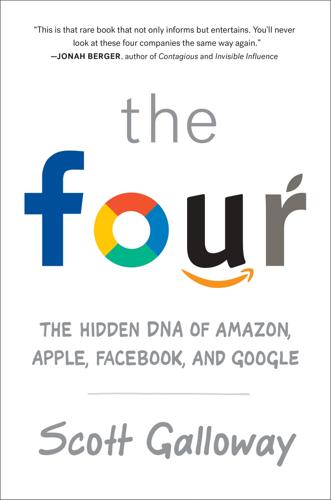
The Four: How Amazon, Apple, Facebook, and Google Divided and Conquered the World
by
Scott Galloway
Published 2 Oct 2017
“The Computer for the Rest of Us.” Commercial, 35 seconds. 2007. https://www.youtube.com/watch?v=C8jSzLAJn6k. 5. “Testimony of Marissa Mayer. Senate Committee on Commerce, Science, and Transportation. Subcommittee on Communications, Technology, and the Internet Hearing on ‘The Future of Journalism.’” The Future of Journalism. May 6, 2009. https://www.gpo.gov/fdsys/pkg/CHRG-111shrg52162/pdf/CHRG-111shrg52162.pdf. 6. Ibid. 7. Ibid. 8. Ibid. 9. Ibid. 10. Warner, Charles. “Information Wants to Be Free.” Huffington Post. February 20, 2008. http://www.huffingtonpost.com/charles-warner/information-wants-to-be-f_b_87649.html. 11.
…
“Asia is now Facebook’s biggest region.” Tech in Asia. February 1, 2017. https://www.techinasia.com/facebook-asia-biggest-region-daily-active-users. 7. Thomas, Daniel. “Amazon steps up European expansion plans.” Financial Times. January 21, 2016. https://www.ft.com/content/97acb886-c039-11e5-846f-79b0e3d20eaf. 8. “Future of Journalism and Newspapers.” C-SPAN. Video, 5:38:37. May 6, 2009. https://www.c-span.org/video/?285745-1/future-journalism-newspapers&start=4290. 9. Wiblin, Robert. “What are your chances of getting elected to Congress, if you try?” 80,000 Hours. July 2, 2015. https://80000hours.org/2015/07/what-are-your-odds-of-getting-into-congress-if-you-try. 10.
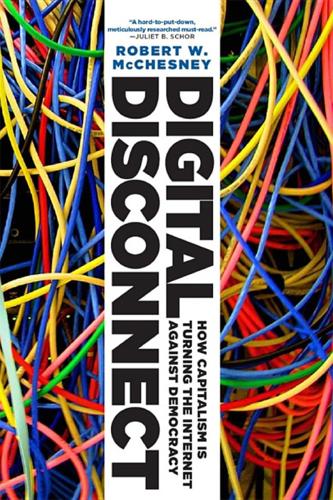
Digital Disconnect: How Capitalism Is Turning the Internet Against Democracy
by
Robert W. McChesney
Published 5 Mar 2013
At the current rates of change, the ratio may well be 6 to 1 within a few years.46 Because there are far fewer reporters to investigate the spin and press releases, the likelihood that they get presented as legitimate news has become much greater.47 “As a direct result of changing media platforms,” one 2011 media industry assessment of the future of journalism put it, “PR pros are now a part of the media in a way they have never been before.”48 Is it a surprise that Gallup found that Americans’ confidence in television news dropped to an all-time low in 2012 and is not even half of what it was less than two decades earlier?49 Or that there has understandably been an increase in the number of people, to nearly one in five, who state they have gone “newsless”—not even glancing at Internet headlines—for the day before the poll?
…
An internal memo on journalism from AOL CEO Tim Armstrong at the time captured the commercial logic: he ordered the company’s editors to evaluate all future stories on the basis of “traffic potential, revenue potential, edit quality and turnaround time.” All stories, he stressed, are to be evaluated according to their “profitability consideration.”91 As one 2011 media industry assessment of the future of journalism put it, this is “good news for public relations professionals who are trying to pitch stories,” because “these sites will be looking for more content to fill their pages.”92 Armstrong’s memo raises the question: What happens when a story—like that of a distant war or the privatization of a local water utility—fails to achieve proper “traffic potential, revenue potential”?
…
It will be a journalism that will overcome the great limitations of professional journalism as it has been practiced in the United States: among other things, reliance upon the narrow range of opinion of people in power as the legitimate parameters of political debate, with a bias toward seeing the world through upper-class eyes. It will be a journalism that can truly open up our politics in the manner democratic theory envisions. However, for this to happen there must be major public investments, and these funds must go to the development of a diverse and independent nonprofit sector. The future of journalism otherwise will likely approach what education would be like if all public investments were removed. With no such investments, our education system would remain excellent for the wealthy, who can afford private schools, mediocre for the upper-middle class, and nonexistent or positively frightening for the increasingly impoverished middle and working classes, the majority of the nation.
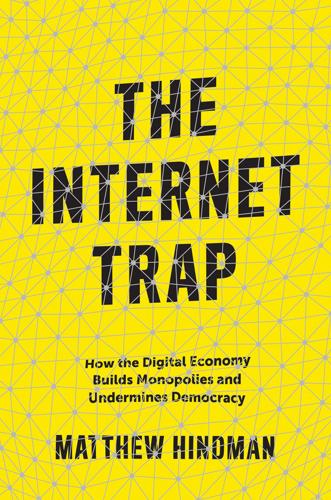
The Internet Trap: How the Digital Economy Builds Monopolies and Undermines Democracy
by
Matthew Hindman
Published 24 Sep 2018
First, it offers a more detailed examination of the principals behind these recommendation systems than previous media scholarship. Recommender systems research has changed dramatically over the past decade, but little of this new knowledge has filtered into 40 • Chapter 3 research on web traffic, online news, or the future of journalism. Much of the writing on recommender systems in these fields has been an unhelpful montage of hypotheticals and what-ifs. Elaborate deductive conclusions have been built from false foundational assumptions. Second, this chapter examines the comparative impact of these technologies across media organizations, something that previous work has overlooked or misunderstood.
…
While MinnPost and VoSD have been celebrated examples of a new breed of local and regional online news organizations, numerous other local online news sites are missing altogether in the above listing—including many other sites once mentioned as promising experiments. The fact that traffic to these “model” outlets is minimal across the board is sobering for the future of journalism. Online Local News • 119 These results are so discouraging, and so contrary to prominent claims about hyperlocal media, that I performed a deeper dive into the data. Perhaps these outlets are present in the data, but miscategorized, or slightly below the 1 percent traffic threshold set as a consistent cross-market bar.
…
Retrieved from https://archives.cjr.org/reports/traffic_jam.php. Graves, L., Kelly, J., and Gluck, M. (2010). Confusion online: faulty metrics and the future of digital journalism. Tow Center for Digital Journalism, Columbia University, New York. Retrieved from http://towcenter.org/research/confusion -online-faults-metrics-and-the-future-of-journalism/ Greenslade, R. (2012, June). Local news crisis: what crisis? audiences are bigger than ever. The Guardian. Retrieved from http://www.theguardian.com/media/greenslade /2012/jun/29/local-newspapers-newspapers. Ha, H.-Y., and Perks, H. (2005). Effects of consumer perceptions of brand experience on the web: brand familiarity, satisfaction and brand trust.
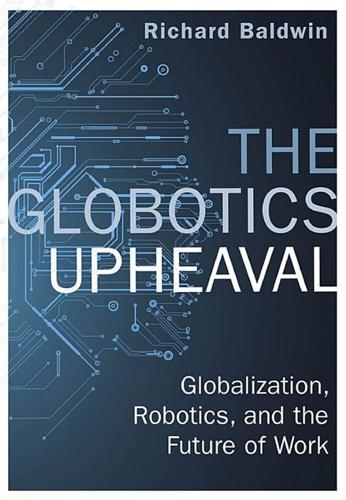
The Globotics Upheaval: Globalisation, Robotics and the Future of Work
by
Richard Baldwin
Published 10 Jan 2019
Andrew Zaleski, “Behind Pharmacy Counter, Pill-Packing Robots Are on the Rise,” CNBC. com, November 15, 2016. 27. The information on the Washington Post is drawn mainly from Joe Keohane, “What News-Writing Bots Mean for the Future of Journalism,” Wired.com, February 16, 2017. 28. Damian Radcliffe, “The Upsides (and Downsides) of Automated Robot Journalism,” MediaShift.org, July 7, 2016. 29. Quotes from Joe Keohane, “What News-Writing Bots Mean for the Future of Journalism,” Wired.com, February 17, 2017. 30. Quoted in Casey Sullivan, “Machine Learning Saves JPMorgan Chase 360,000 Hours of Legal Work,” Technologist (blog), FindLaw.com, March 8, 2017. 31.
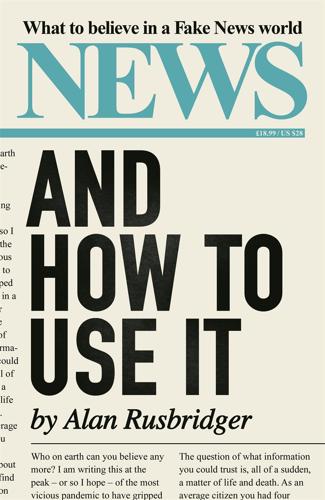
News and How to Use It: What to Believe in a Fake News World
by
Alan Rusbridger
Published 26 Nov 2020
In publishing, BuzzFeed noted that the claims in the report were unverified and that the report contained errors. Alternative view: who are you to sit on such important material? Publish it and let the public decide. The New York Times (and several others) didn’t publish: BuzzFeed did. Who was right? The future of journalism depends on whether the wider public decide gatekeepers are necessary and/or desirable; on who gets to call themselves a gatekeeper; and on what the rules of gatekeeping are. But there is now also a world out there without any gates. ‘GOTCHA’ This was the headline used by the Sun on 4 May 1982 to celebrate the torpedoing of an Argentine warship, the General Belgrano, carrying 1,138 men.
…
<https://www.theguardian.com/environment/2019/may/17/why-the-guardian-is-changing-the-language-it-uses-about-the-environment> Christiansen, Arthur. Headlines All My Life. Portsmouth, NH: Heinemann, 1961. Cillizza, Chris. ‘How annotation can save journalism’. The Washington Post, 7 October 2015. <https://www.washingtonpost.com/news/the-fix/wp/2015/10/07/why-i-believe-annotation-is-the-future-of-journalism/> Clarke, Cameron. ‘The antidote to scale? Dutch site De Correspondent has an alternative model for web journalism – and it’s paying off’. The Drum, 2 February 2017. <https://www.thedrum.com/news/2017/02/02/the-antidote-scale-dutch-site-de-correspondent-has-alternative-model-web-journalism> ‘Code of Principles’.
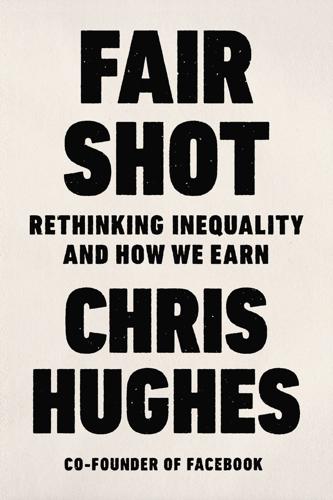
Fair Shot: Rethinking Inequality and How We Earn
by
Chris Hughes
Published 20 Feb 2018
Shame on you for what you did to those people!” Half of the people in the room turned their heads to look. He and others like him saw me as the crusader from Silicon Valley intent on destroying the civic traditions of the Fourth Estate. I had fired a beloved magazine editor in a time of deep anxiety about the future of journalism, and in doing so, had touched a nerve that ran deeper than I could have ever imagined. After the editorial staff left, I spent another year with a new team, trying to reinvigorate the company. Despite their valiant efforts, we saw little progress. Eventually I learned what everyone else had known the whole time: The New Republic would never break even.
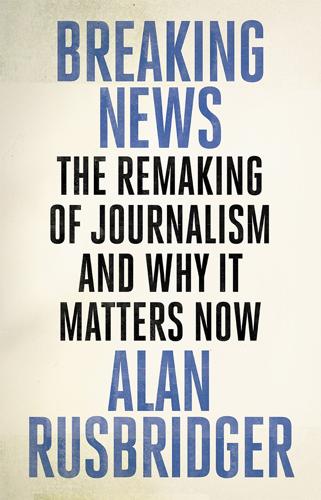
Breaking News: The Remaking of Journalism and Why It Matters Now
by
Alan Rusbridger
Published 14 Oct 2018
That wasn’t, in fact, the reaction of most readers. I suspect many of them thought the opposite: At last a journalist who’s not bullshitting us. I met Luyendijk in June 2010 in unusual circumstances: we were both guests of the Queen of the Netherlands. The entire royal family sat through our presentations on the future of journalism. I struggled to imagine the British royal family doing the same. Was there anything else Luyendijk knew little about, but considered important? He thought for a moment, and answered: banking. We were still in the grip of the financial crisis triggered by the baroque excesses of financial wizards.
…
But now – at the time of journalism’s greatest crisis – the defence of ‘journalism’ seems infinitely more complicated. In an age of information chaos and crisis, journalists feel they have to win the argument that there is a category of information – let’s call it ‘proper’ news – which is better than, and distinct from, all the other stuff out there. Winning that argument seems crucial to the future of journalism. If you want to make people pay for proper news, you have to make the case that proper news has a value – and not purely financial – that the other stuff lacks. Or you may want your proper news to be a more attractive environment for advertising than the wild west of the world wide web. Or you may simply want people to trust your proper news because it was produced by proper journalists . . . and the other stuff wasn’t.
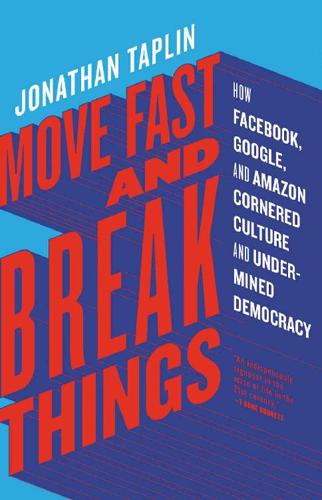
Move Fast and Break Things: How Facebook, Google, and Amazon Cornered Culture and Undermined Democracy
by
Jonathan Taplin
Published 17 Apr 2017
In 2014 online news sources such as BuzzFeed and Huffington Post got almost 50 percent of their inbound traffic from Facebook, and as the CEO of Bloomberg Media Group, Justin Smith, said, “The list is a lot longer than is publicly known of those that have Facebook delivering half to two-thirds of their traffic right now.” 6. So will Facebook really determine the future of journalism? What seems obvious in a world of BuzzFeed and Huffington Post being fed by Facebook is that the winning strategy seems to be to produce more content at a lower price. Digiday looked at the race for what some are calling peak content. What it found was that in 2010 the New York Times, with 1,100 people employed in the newsroom, created 350 pieces of original content per day and attracted 17.4 million page views per day.
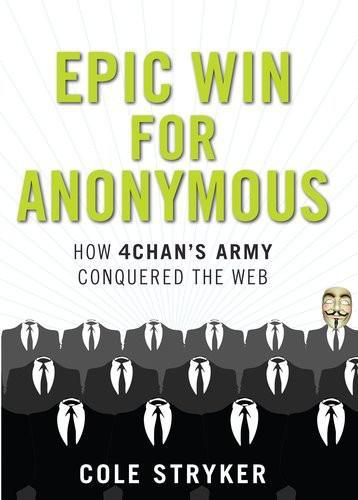
Epic Win for Anonymous: How 4chan's Army Conquered the Web
by
Cole Stryker
Published 14 Jun 2011
Though Lamb recognizes the influence of 4chan, he’s quick to concede that Good Morning America–type mainstream content still pulls tremendous weight on the Internet. But those big media entities are increasingly waiting for content to percolate on the web so they can pounce on buzz-worthy content. I also asked Lamb the obligatory “future of journalism” question. While he recognizes the power of Buzzfeed’s model, he reminds me that Buzzfeed does not do any actual reportage—no interviews, no articles, nothing. They’re curators, and we’ll always need people doing the journalistic legwork, even if serious news sites trend toward a Buzzfeed-like model.
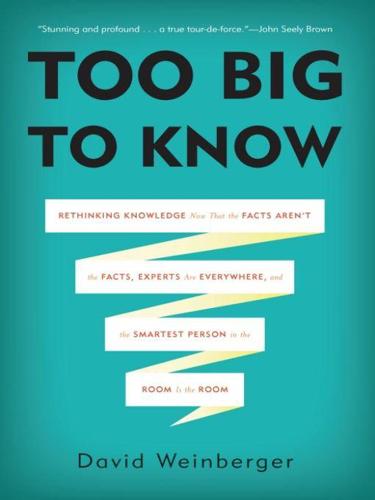
Too Big to Know: Rethinking Knowledge Now That the Facts Aren't the Facts, Experts Are Everywhere, and the Smartest Person in the Room Is the Room
by
David Weinberger
Published 14 Jul 2011
At one point it was turned into an editorial critical of the role that the LA Times had played in the run-up to the war. Comparisons to the Philippine-American War were inserted by some people and removed by others.17 And then, of course, there were the disgusting images repeatedly posted by vandals. Jeff Jarvis, an important voice for openness in the debate about the future of journalism, blogged that “[a] wikitorial is bound to turn into a tug-of-war” and suggested that an alternative wiki page be set up for those who disagreed with the editorial. The founder of Wikipedia, Jimmy Wales, responded that he had already done so, creating a “counterpoint” wiki on the Los Angeles Times site for those who differed from the newspaper’s view.18 “I’m not sure the LA Times wants me setting policy for their site,” wrote Wales, “but it is a wiki after all, and what was there made no sense.”19 No sense at all.
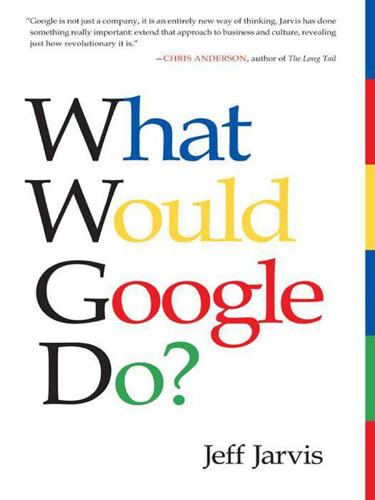
What Would Google Do?
by
Jeff Jarvis
Published 15 Feb 2009
So why not outsource distribution, technology, and a good share of ad sales to Google as a platform so the paper could concentrate on its real job—journalism? Roussel was following a key rule in this book: Decide what business you’re in. The next day, I issued the same challenge to his competition, the Guardian, where I work and where I wound up a series of seminars on the future of journalism. My assignment was to pose 10 questions papers should answer now. The first: Who are we? Papers must no longer think of themselves as manufacturers or distributors. Are they in the information business? That would seem obvious, but when information can be so quickly and easily commodified, it is a perilous position.
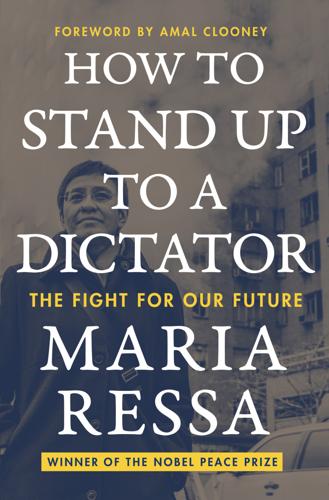
How to Stand Up to a Dictator
by
Maria Ressa
Published 19 Oct 2022
When the owner of the company wants to do something you don’t, either you accept it or you leave. By the time the meeting ended, I had handed in my resignation, helped choose my successor,17 and worked out a timeline of transition. Later, in a written note, I thanked my team for six amazing years.18 We took risks together to help define the future of journalism and our nation; we took a stand and said no to corruption; we embraced the growth of social media; and we joined hands with citizen journalists to patrol our elections and the integrity of our nation. I told them to value and protect their editorial independence. I wished them clarity of thought, stamina, and the courage to fight for what is right.
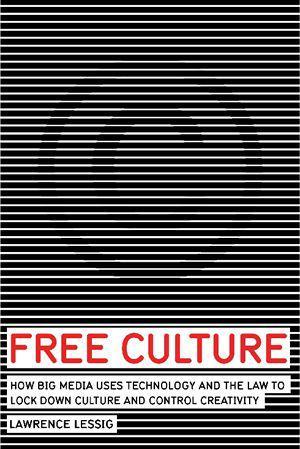
Free culture: how big media uses technology and the law to lock down culture and control creativity
by
Lawrence Lessig
Published 15 Nov 2004
It allows for a much broader range of input into a story, as reporting on the Columbia disaster revealed, when hundreds from across the southwest United States turned to the Internet to retell what they had seen.[45] And it drives readers to read across the range of accounts and "triangulate," as Winer puts it, the truth. Blogs, Winer says, are "communicating directly with our constituency, and the middle man is out of it"—with all the benefits, and costs, that might entail. Winer is optimistic about the future of journalism infected with blogs. "It's going to become an essential skill," Winer predicts, for public figures and increasingly for private figures as well. It's not clear that "journalism" is happy about this—some journalists have been told to curtail their blogging.[46] But it is clear that we are still in transition.
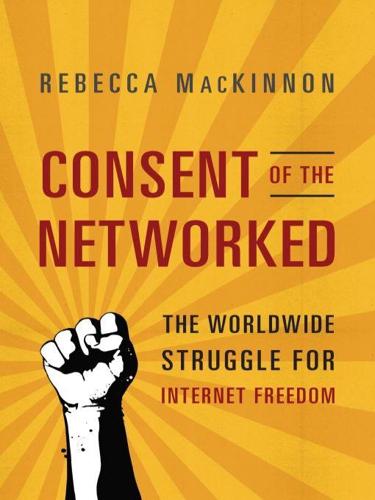
Consent of the Networked: The Worldwide Struggle for Internet Freedom
by
Rebecca MacKinnon
Published 31 Jan 2012
As I started following blogs written by other less famous but no less eloquent people all over the world—people who were not professional journalists but who were witnesses or parties to events that no mainstream Western news media had reported—it was clear that the Internet-driven citizen media revolution had implications not only for the future of journalism but also for geopolitics. In January 2004 I took what was supposed to have been five months’ leave from CNN’s Tokyo bureau to spend a semester at the Shorenstein Center on the Press, Politics, and Public Policy at Harvard’s Kennedy School of Government, where I made it my full-time job to learn about the new world of citizen-driven online media.
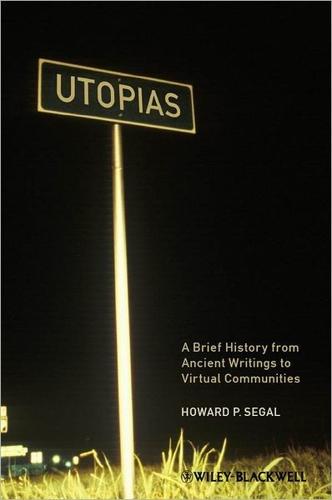
Utopias: A Brief History From Ancient Writings to Virtual Communities
by
Howard P. Segal
Published 20 May 2012
Anna Quindlen, “Turning the Page: The Future of Reading is Backlit and Bright,” Newsweek, 155 (April 5, 2010), 52–53. See also Susan Straight, “Books’ Power to Connect Potent as Ever,” Bangor Daily News, June 24, 2010, A7; and Julie Bosman, “Publishing Gives Hints of Revival, Data Show,” New York Times, August 9, 2011, C1, C6. David Reevely quoted in Scott Foster, “The Future of Journalism: What’s Next for News?” Carleton University Magazine, Spring 2010, 23. This is an excellent overview of the topic. See also Josh Quittner, “The Future of Reading,” Fortune, 161 (March 1, 2010), 63–67, regarding publishing’s foolish reliance on simple-minded and ignorant consultants rather than on their foremost reporters to try to grasp the ongoing changes in the industry from the mid-1990s onward.
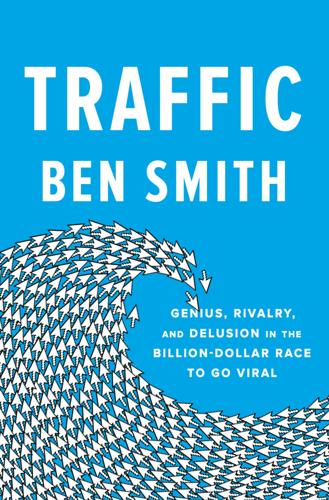
Traffic: Genius, Rivalry, and Delusion in the Billion-Dollar Race to Go Viral
by
Ben Smith
Published 2 May 2023
There were certainly no ad buyers at the event, which felt to Batty like some kind of college party, “super lame.” But most of the attendees loved the noncommercial ethos. Andrea Breanna recalled, “We were total weirdos. It didn’t tie to business. Nobody thought this would end up replacing or be the future of journalism or media or any of that. We didn’t know what it would become.” Jonah, though, did have a glimpse of where it was going. He saw no tension between the noncommercial spirit of the Eyebeam event and his other career—which few at Eyebeam knew or cared about—as a partner in the promising new business of The Huffington Post.
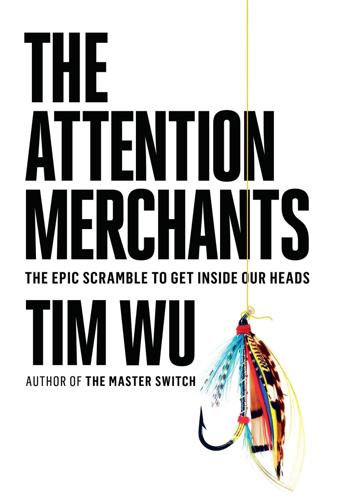
The Attention Merchants: The Epic Scramble to Get Inside Our Heads
by
Tim Wu
Published 14 May 2016
As Ben Cohen, founder of the journalism site The Daily Banter, wrote: “I loathe BuzzFeed and pretty much everything they do….It could well trump Fox News as the single biggest threat to journalism ever created.”3 When BuzzFeed presented the Egyptian democratic revolution as a series of GIFs from the film Jurassic Park, Cohen fulminated: “To say this is childish, puerile bullshit would be a massive understatement….Doing funny GIF posts about cats and hangovers is one thing, but reducing a highly complex political crisis into 2 second moving screen shots of a children’s dinosaur movie is something completely different. If BuzzFeed really is the future of journalism, we’re completely and utterly fucked.”4 Indeed, by 2012, the scramble for eyeballs against forces like BuzzFeed seemed to bring news media to a new low. When Fox News broadcast a video of a man committing suicide and BuzzFeed reposted the link, the Columbia Journalism Review was compelled to ask, “Who’s worse?
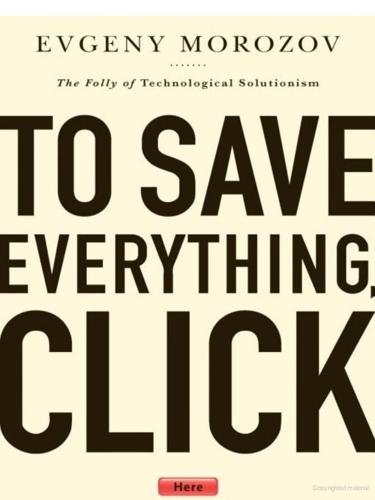
To Save Everything, Click Here: The Folly of Technological Solutionism
by
Evgeny Morozov
Published 15 Nov 2013
As someone who shares many of the ends of Lessig’s agenda, I take little pleasure in criticizing his means, but I do think they are intellectually unsustainable and probably misleading to the technologically unsavvy. Internet-centrism, like all religions, might have its productive uses, but it makes for a truly awful guide to solving complex problems, be they the future of journalism or the unwanted effects of transparency. It’s time we abandon the chief tenet of Internet-centrism and stop conflating physical networks with the ideologies that run through them. We should not be presenting those ideologies as inevitable and natural products of these physical networks when we know that these ideologies are contingent and perishable and probably influenced by the deep coffers of Silicon Valley.
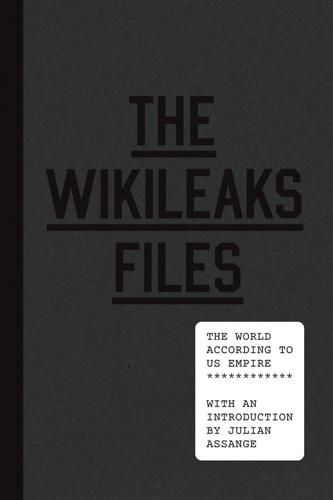
The WikiLeaks Files: The World According to US Empire
by
Wikileaks
Published 24 Aug 2015
Instead They Caused a Tragedy,” Guardian, September 16, 2009. 6“A Gag Too Far,” Index on Censorship, October 14, 2009. 7Mark Sweney, “Bank Drops Lawsuit against Wikileaks,” Guardian, March 6, 2008; “Wikileaks Given Data on Swiss Bank Accounts,” BBC News, January 17, 2011; “WikiLeaks to Target Wealthy Individuals,” Daily Telegraph, January 17, 2011. 8Yochai Benkler, “A Free Irresponsible Press: Wikileaks and the Battle over the Soul of the Networked Fourth Estate,” Harvard Civil Rights-Civil Liberties Law Review 46 (2011); Lisa Lynch, “‘We’re Going to Crack the World Open’: Wikileaks and the Future of Investigative Reporting,” Journalism Practice 4: 3 (2010)—Special Issue: The Future of Journalism. 9John Vidal, “WikiLeaks: US Targets EU over GM Crops,” Guardian, January 3, 2011. 10See Mariana Mazzucato, The Entrepreneurial State: Debunking Public vs Private Sector Myths (London/New York/Delhi: Anthem Press, 2013), Kindle loc. 2302–2320; and Leo Panitch and Sam Gindin, The Making of Global Capitalism: The Political Economy of the American Empire (London/New York: Verso, 2013), p. 288. 11https://wikileaks.org/tpp-ip2/pressrelease. 12Peter Gowan, The Global Gamble: Washington’s Faustian Bid for World Dominance (London/New York: Verso, 1999). 13Quoted in Leo Panitch and Sam Gindin, “Global Capitalism and the American Empire,” Socialist Register 40 (2004). 14Figure cited in Andrew G.

Four Battlegrounds
by
Paul Scharre
Published 18 Jan 2023
., https://openai.com/blog/better-language-models/ 117“simply to predict the next word”: “Better Language Models.” 117the kind of text that GPT-2 generates: This text was generated via https://talktotransformer.com/ using the final 1.5 billion parameter GPT-2 model. 118bot-generated articles had been limited to reporting facts and figures: Jaclyn Peiser, “The Rise of the Robot Reporter,” New York Times, February 5, 2019, https://www.nytimes.com/2019/02/05/business/media/artificial-intelligence-journalism-robots.html; Nicole Martin, “Did a Robot Write This? How AI Is Impacting Journalism,” Forbes, February 8, 2019, https://www.forbes.com/sites/nicolemartin1/2019/02/08/did-a-robot-write-this-how-ai-is-impacting-journalism/#7cc457dd7795; Joe Keohane, “What News-Writing Bots Mean for the Future of Journalism,” Wired, February 16, 2017, https://www.wired.com/2017/02/robots-wrote-this-story/. 119fake news at industrial scales: Ben Buchanan et al., Truth, Lies, and Automation: How Language Models Could Change Disinformation (Center for Security and Emerging Technology, May 2021), https://cset.georgetown.edu/publication/truth-lies-and-automation/. 120malicious AI applications: Miles Brundage et al., The Malicious Use of Artificial Intelligence: Forecasting, Prevention, and Mitigation (February 2018), https://maliciousaireport.com/. 120“fear-mongering”: Anima Kumar, “An Open and Shut Case on OpenAI,” anima-ai.org, January 1, 2021, https://anima-ai.org/2019/02/18/an-open-and-shut-case-on-openai/. 120“The words ‘too dangerous’ were casually thrown out here”: James Vincent, “AI Researchers Debate the Ethics of Sharing Potentially Harmful Programs,” The Verge, February 21, 2019, https://www.theverge.com/2019/2/21/18234500/ai-ethics-debate-researchers-harmful-programs-openai. 120technical breakthrough for which they hadn’t yet seen the academic paper: James Vincent, “OpenAI’s New Multitalented AI Writes, Translates, and Slanders,” The Verge, February 14, 2019, https://www.theverge.com/2019/2/14/18224704/ai-machine-learning-language-models-read-write-openai-gpt2; “Better Language Models and Their Implications,” openai.com, n.d., https://openai.com/blog/better-language-models/; Alec Radford et al., Language Models Are Unsupervised Multitask Learners (openai.com, n.d.), https://cdn.openai.com/better-language-models/language_models_are_unsupervised_multitask_learners.pdf. 120“too dangerous” theme was echoed in other outlets: Delip Rao, “When OpenAI Tried to Build More Than a Language Model,” deliprao.com, February 19, 2019, http://deliprao.com/archives/314 (page discontinued); Alex Hern, “New AI Fake Text Generator May Be Too Dangerous to Release, Say Creators,” The Guardian, February 14, 2019, https://www.theguardian.com/technology/2019/feb/14/elon-musk-backed-ai-writes-convincing-news-fiction; Aaron Mak, “When Is Technology Too Dangerous to Release to the Public?”
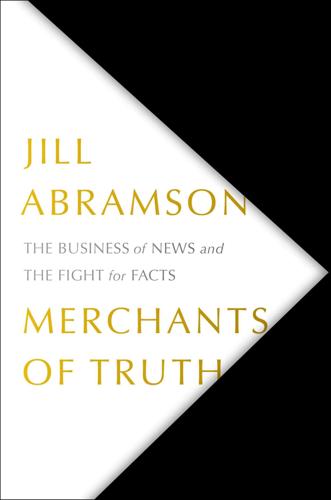
Merchants of Truth: The Business of News and the Fight for Facts
by
Jill Abramson
Published 5 Feb 2019
They seemed so tin-eared and unaware that their advice dripped with sexism, not the same open hostility that Katharine Graham had faced when she took over, but a definite echo. They had little regard for the fact that she was a Harvard and Stanford Law graduate who had faced the plight of the newspaper industry through the prism of the Post’s ad department and knew the future of journalism would be digital. For the time being she had to stem the losses and keep the paper alive. She had already decided the Post needed new editorial leadership for the digital age and that she had to quickly reverse her uncle’s mistake of separating the newspaper from the website. Her elevation coincided with the hinge moment in which readers, for the first time, got more of their news from the internet than from newspapers, a secular change that would kill hundreds of papers by the time it was done.